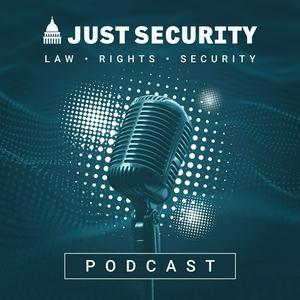Prior to the U.S. attacks that dislodged president Nicolas Maduro of Venezuela, American forces have for weeks been blockading U.S.-sanctioned ships carrying Venezuelan oil. In mid-December, the United States began boarding, and seizing, tankers in the so‑called “shadow fleet” that move sanctioned oil across the globe, starting with stateless vessels. In a dramatic turn, this week the U.S. Coast Guard, with U.S. and allied military support, intercepted and boarded two Russian-flagged oil tankers in international waters, prompting protests from Moscow.
Can the U.S. lawfully board and seize Russian‑flagged merchant ships? What does international maritime law, and the law of naval warfare, have to say about actions like these? To unpack the legal and geopolitical stakes, host Tess Bridgeman speaks with Rob McLaughlin, professor at the Australian National Centre for Ocean Resources and Security and the ANU College of Law, who previously served as both a Seaman officer and Legal officer in the Royal Australian Navy, including in senior roles such as Fleet Legal Officer, Strategic Legal Adviser, Director of Operations and International Law, and Director of the Naval Legal Service.
Show Note:
Elizabeth Hutton, Maritime Law Enforcement on the High Seas: Authority, Jurisdiction, and the Seizure of The Skipper An Expert Backgrounder (Dec. 22, 2025)
Rob McLaughlin and Connor McLaughlin, Was the Visit and Seizure of the Skipper off the Coast of Venezuela Lawful? (Dec. 17, 2025)
See also Question 31 in Tess Bridgeman, Michael Schmitt, and Ryan Goodman, Expert Q&A on the U.S. Boat Strikes (Dec. 13, 2025)
Michael Schmitt and Rob McLaughlin, Blockading Venezuela: The International Law Consequences (Dec. 18, 2025)
Michael Schmitt, Ryan Goodman and Tess Bridgeman, International Law and the U.S. Military and Law Enforcement Operations in Venezuela (Jan. 4, 2026)
Just Security’s Collection: U.S. Lethal Strikes on Suspected Drug Traffickers, Operation Southern Spear, Operation Absolute Resolve


